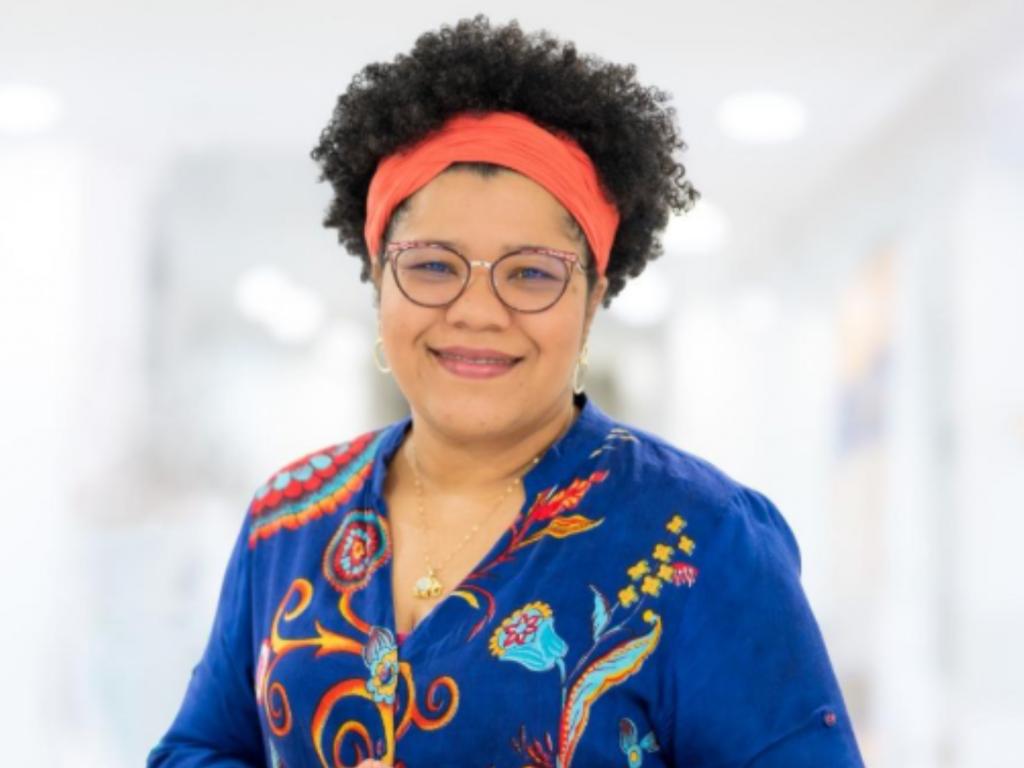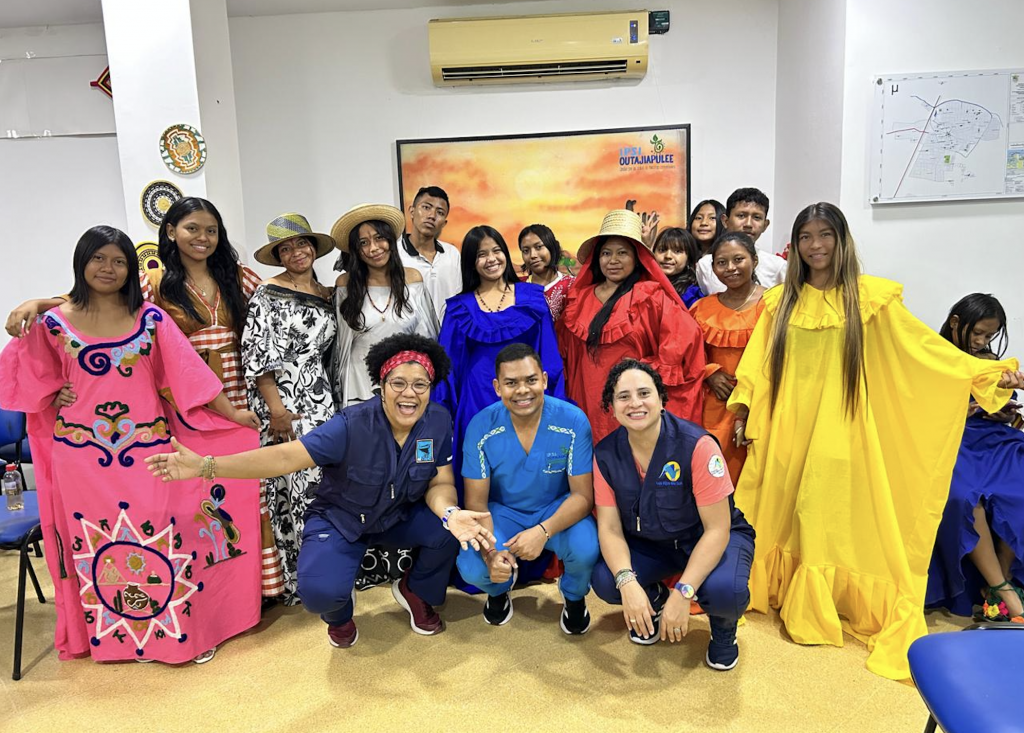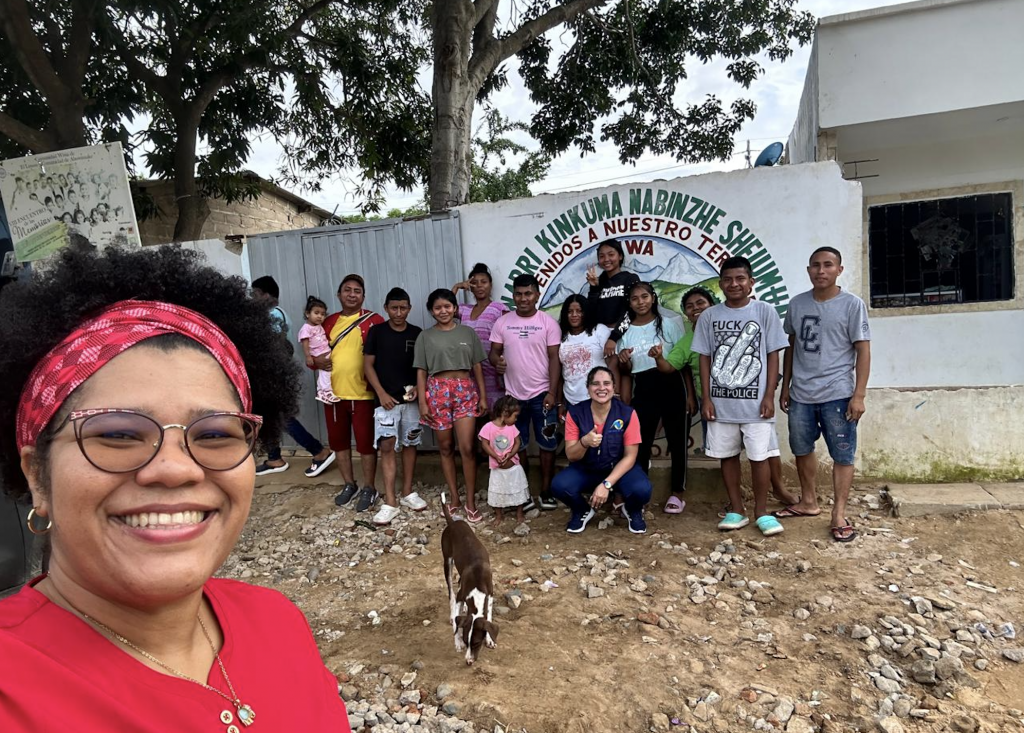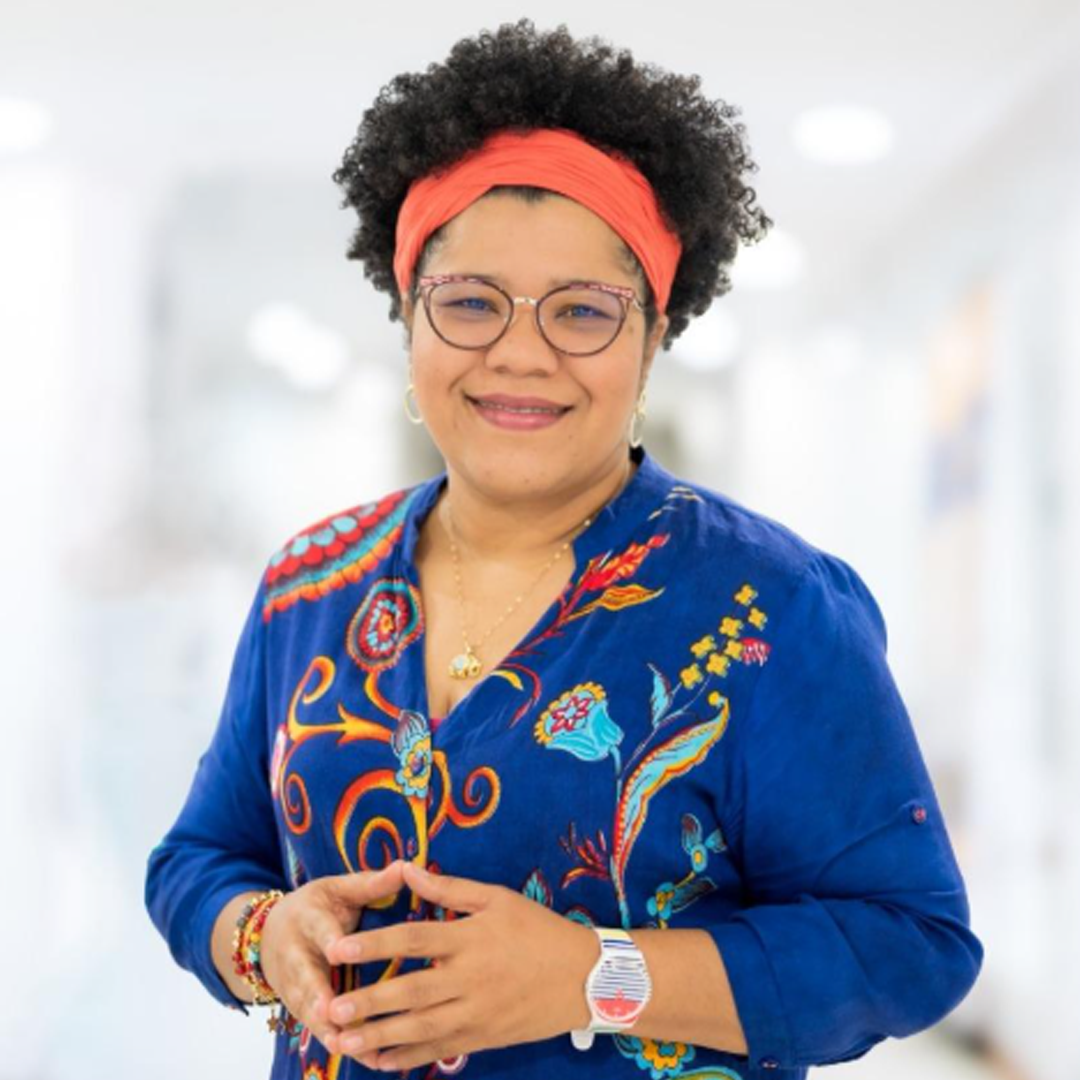Iliana Curiel Arismendy is a pediatrician from the Wayuu people in Colombia. She holds a Master’s degree in Public Health and is a former fellow of the Master’s Program in Social Policy at Pontificia Universidad Javeriana. Her work as a researcher at the NIHR LatAm Centre focuses on the mental health of Indigenous adolescents, the social appropriation of knowledge, and the co-creation of intercultural health models. In this interview, she shares the challenges, lessons, and dreams that have shaped her journey as a researcher.

What is your work within the NIHR LatAm Centre?
At the NIHR LatAm Centre, I collaborate as a developing researcher on issues related to mental health in Indigenous adolescents and youth, as well as non-communicable diseases, integrating participatory methodologies, ancestral knowledge, and the analysis and influence of public policies. I am currently leading processes for the social appropriation of knowledge and the co-creation of intercultural health models in La Guajira, Colombia, alongside Wayuu communities.
What graduate program are you studying and what inspired you to pursue this field?
I have just completed my Master’s in Social Policy, becoming the first graduate of this partnership. As an Indigenous Wayuu pediatrician, I have witnessed how structural inequalities affect the health of children, adolescents, and youth. My desire to influence the design of public policies grounded in social justice and interculturality led me to choose this academic path.
What has been the greatest challenge in your training so far?
The greatest challenge has been maintaining a balance between fieldwork and academic rigor, especially when representing a voice that has historically been silenced. Translating community narratives into scientific frameworks without losing their essence has been both challenging and deeply transformative.

What key skill have you developed during this time?
I have strengthened my ability to conduct participatory research with an intercultural approach. I learned to design methodologies that recognize other ways of knowing, to systematize community knowledge, and to build proposals from a dialogue between ancestral medicine, public health, and policy frameworks in order to bring them to life and to promote advocacy.
What was the topic of your thesis or final research project?
My thesis is titled: “Participation of Ethnic Youth in the Implementation of the National Mental Health Policy: The Voices of Wayuu and Wiwa Youth and Relevant Stakeholders in La Guajira, Colombia.” This study addresses how Indigenous youth, particularly Wayuu and Wiwa, participate (or not) in the implementation of the National Mental Health Policy in La Guajira. Through interviews and participatory workshops, I analyzed their perceptions of mental health, their role as political actors, and the structural and cultural barriers they face.
The findings show that although there are legal frameworks that promote the inclusion of ethnic and generational perspectives, in practice there are still significant gaps. My research proposes moving toward a more intercultural implementation that listens to youth voices and respects Indigenous conceptions of mental health.
I analyzed how young people understand mental health, the ways they influence change, and the challenges they face in policies that do not always recognize their cultural identity. During the process, I experienced a profound realization when I identified an epistemic gap between conventional methodologies and the realities of Indigenous peoples. This gap reveals the urgency of having clear ethical and methodological guidelines for conducting research with and from the communities. Doing intercultural research is not just about hearing their voices, but about transforming the ways we produce knowledge.

Where do you see your research in five years?
In five years, I see myself in a policymaking position that allows me to transform structural frameworks and ensure the right to health with an ethnic, territorial, and generational approach as a priority on the global agenda. My experience in the master’s program gave me tools to understand how public policies are built, and my purpose is to influence from within so that Indigenous health stops being a footnote and becomes a state and global priority. I also dream of consolidating a policy advocacy center led by Indigenous women scientists, one that brings together research, teaching, training, and action to make our voices, knowledge, and proposals visible in spaces where we have historically been excluded.

